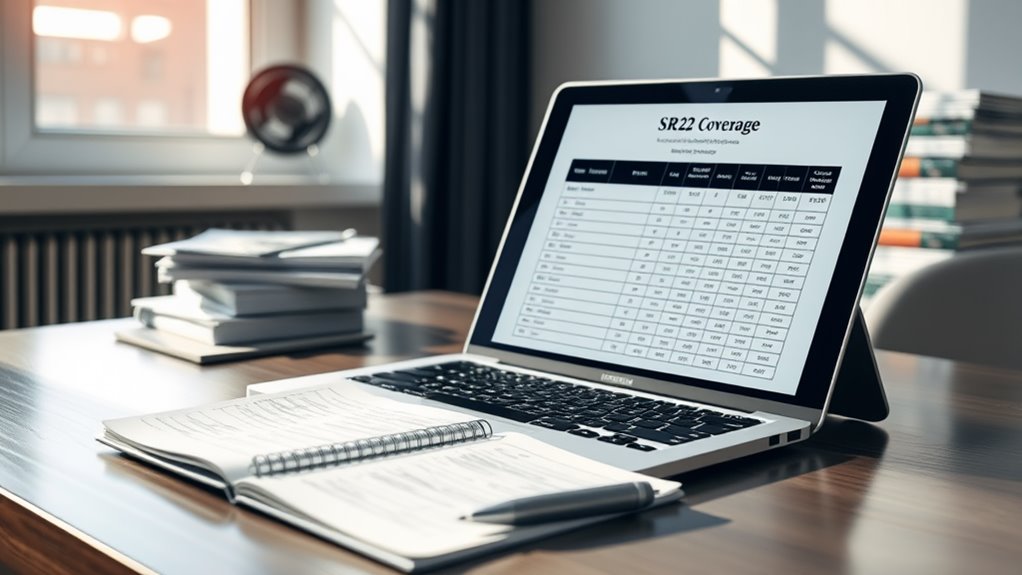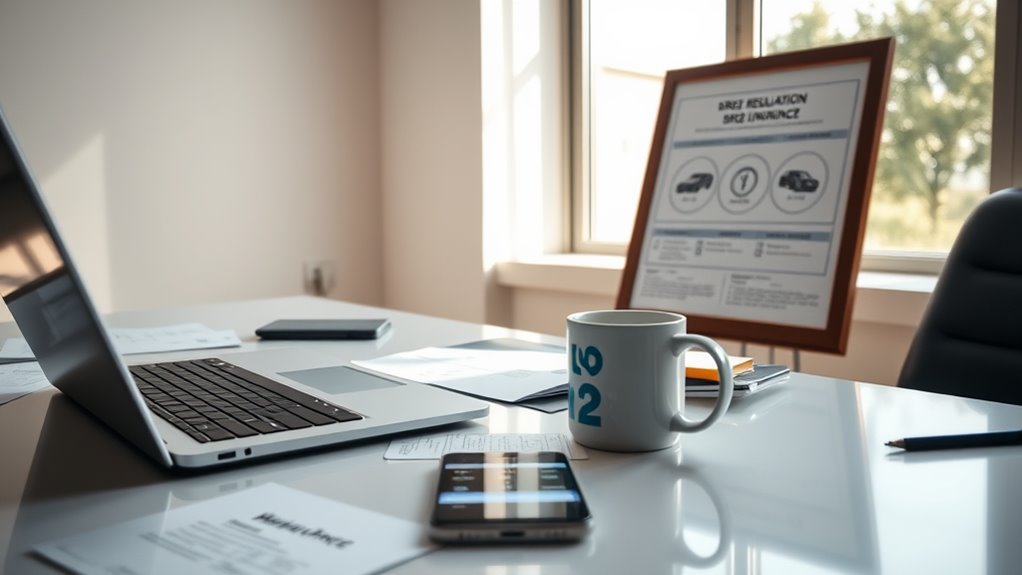Steps to Assess SR22 Coverage for Non-Owners
When evaluating SR22 coverage as a non-owner, it's essential to first determine your eligibility and driving history. Not all insurers provide non-owner SR22 policies, so you'll need to research those that do. Gather your personal information and past insurance details to compare quotes effectively. By understanding your options and costs, you can find a suitable plan. What factors should you keep in mind to guarantee you're compliant and financially secure?
When you find yourself needing to drive but don't own a vehicle, understanding SR22 coverage for non-owners becomes vital. This specific insurance option acts as proof to the state that you have the necessary coverage, especially if you're classified as a high-risk driver due to previous offenses like DUI or reckless driving. It's tailored for those who need to drive without vehicle ownership, guaranteeing you meet state insurance requirements.
Understanding SR22 coverage for non-owners is essential for high-risk drivers needing to fulfill state insurance requirements.
To qualify for non-owner SR22 insurance, you mustn't own or have access to a vehicle owned by someone you live with. A valid driver's license is also a must, as is a clean driving record, free from ignition interlock device requirements. Typically, this type of coverage is mandatory when a court or DMV orders it following a serious driving infraction. Evaluating your eligibility is the first step in securing this coverage.
Once you've confirmed your eligibility, the next step is to obtain non-owner SR22 insurance. Start by researching insurers that specialize in this niche. Not all insurers offer non-owner policies, so it's imperative to find providers who do. Gather relevant documents including personal identification and any insurance history you may have. After that, you can request quotes from multiple companies. Comparing these quotes will help you gauge the market rates and find a plan that fits your budget and needs.
Cost is another important factor in evaluating SR22 coverage. Premiums for non-owner policies can vary considerably based on several factors including your driving record, age, and geographic location. Generally, you can expect the premiums to be lower than those for owner policies, but you should still be aware of possible filing fees. These fees typically fall between $15 and $50 for the SR22 form itself. It's wise to engage in comparison shopping to verify you're getting the best deal available.
The coverage features of non-owner SR22 insurance typically include basic liability coverage, which encompasses bodily injury and property damage liability. However, it's important to remember that this policy acts as secondary insurance, meaning it kicks in only after the vehicle owner's insurance has been exhausted. Some policies may offer additional coverage options, such as uninsured motorist coverage, but these can vary by state. Additionally, this coverage meets state minimum liability requirements, ensuring you are compliant with legal standards.
Maintaining your SR22 coverage is vital for avoiding penalties or a license suspension. You'll need to guarantee that you make regular premium payments to keep your policy active. Any changes in your personal circumstances that might affect your coverage must be reported to your insurer promptly. A lapse in coverage can lead to compliance issues, such as needing to re-file your SR22 with the DMV.
Conclusion
To sum up, evaluating SR22 coverage for non-owners requires careful consideration of your eligibility and options. By comparing quotes and understanding your financial commitments, you can find a plan that meets your needs. Remember, "an ounce of prevention is worth a pound of cure." Taking the time to research and choose the right coverage can save you from potential headaches down the road. Stay informed and proactive to maintain compliance and protect your driving privileges.

